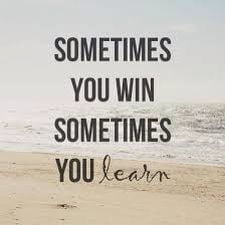Last week I published the quarterly ratings piece for the 2019 winter book for the sports radio format. There were over 25 markets featured, and a number of great stories for internal and external use. I write these pieces to help educate the industry on the success taking place inside this format. It not only raises the awareness of others in the industry, but it also becomes information brands can use to strengthen their bonds with audiences and advertisers.
Many in the sports radio business like to measure themselves by how they measure up against the other in-market sports competitors. If you look though at where the majority of advertising dollars and time spent listening is done, it’s not on sports stations. This is why I’ve stressed for the past few years that this format needs to think bigger and stop labeling itself as this nice little niche space. We’re better than that.
I understand there’s always going to be some ego involved and folks are going to look at who was ranked higher between two or three competing sports stations. That’s unavoidable. But regardless of the city, if there are two or three options to listen to, someone is going to finish ahead, and someone is going to finish behind. If two or three of those brands are ranked in the Top 5 or Top 10 though, that’s success, and you can make a lot of money with that type of consistent performance.

I’m a big believer that how you handle winning and losing speaks volumes about your leadership. Does the staff know where they stand and what did or didn’t work? Are people given reason to feel efforts are appreciated when results are favorable? Does the boss do anything special to show they value their employees when they achieve success? Or is the person in charge withholding information and just focusing on the next challenge without taking a minute to enjoy what the group just accomplished?
In sports, you see so many coaches who are so focused on the competition and next task that they don’t seem to be happy even when they win a title. It makes the joy of winning less fun. I’ve never understood that. If the only thing you’re focused on is playing the game or in this case, creating the content and generating ratings, how fulfilling can it be if when it works and you don’t even take a second to appreciate it?
When I programmed stations in San Francisco and St. Louis, I was notorious for holding monthly meetings with the entire staff. Weekday hosts, producers, board ops, digital folks, and at times, sales people or engineers would all be in the room. I felt it was vital for everyone to understand where the station stood from a competitive standpoint, what was positive and not up to par, what the goal was for the brand, and what was on the horizon that we needed to pay attention to.
These meetings usually ran an hour and I always tried to include some type of teachable exercise in them. Sometimes they hit, sometimes they missed, but I believed that as the leader of the brand it was important for me to keep everyone aware of our progress and help them get better. I ended each meeting by naming someone our Employee of the Month, and with that came acknowledgement from the staff and cash from my personal bank account with one caveat; the chosen individual had to put on a silly costume that tied into the way I defined their prior month of success. Most of the crew laughed and had fun with it and it brought the team together.

I find that when you lose, it’s easier to challenge a team to push harder in order to reverse your luck. You may give them a pat on the back and encourage them not to get down. Other times you may kick them in the ass and let them know you expect better. Competitive people like to win, and they don’t mind digging in deeper to try and get ahead.
But when you’re on the winning team, that too requires a certain tone and message from the program director. I personally think it’s wisest to conduct yourself in a classy manner. Thank your team for their hard work, acknowledge the audience for making a difference, pay respect to your company for giving you the tools to do your job effectively, and show respect to your competitor. If you take the high road and focus on keeping your team hungry, it shows you’re thankful for the win, not above anyone else, and committed to continue building on the momentum.
If you choose to make excuses or point fingers when you lose, it’ll make people question if you’re accountable and someone they want to go thru a wall for. Even worse, if you win and get cocky, and rub other people’s noses in it, it will come back to bite you in the ass at some point. There’s nothing people like more than to see an arrogant person get put in their place.
As a leader of a brand, you can lose sight of the fact that not everyone on your staff likes your approach or vision. You can talk about keeping things inside the locker room and acting like a team until you’re blue in the face, but some people may not like your personality, the way you address issues or manage other staff members or they just may be unhappy with their work schedule or salary. Those can all be motivators to expose you in a negative manner.

People in this industry have long memories. What you say and do gets magnified especially when you’re in charge. If you aren’t careful and self aware of how things can be used against you, it’ll do damage. It may also prevent someone from wanting to work for you in the future who could help your brand.
I saw an example of this recently, and I’m not going to identify the market or station out of respect for them, but how they conducted themselves after earning a victory was disappointing. This is a station I respect with a number of good talented people working at it, and it’s done well in the ratings for quite some time. In my opinion, they should’ve been looking forward instead of spitting downhill at others.
After seeing the example of what occurred I told an industry friend “when you live in a mansion with iron gates, have the best home in the city, and have homeless people standing on the outside, you don’t antagonize them and offer to give up your home if they can climb over or thru the fence.”
There was little to gain and everything to lose for the brand in this situation. One cocky response which took jabs at the fans of a local market pro team, and disrespected competitors, was put in writing and wound up on social media. That led to unnecessary negative attention for the station and program director.

If even one meter left the radio station or one news outlet wrote a column giving the station bad PR, is it worth it? The PPM system we deal with is far from perfect. Most PD’s don’t know their metered users on a personal level and why listeners use their stations a certain way. We rely on data, listening patterns, and gut instincts when making decisions. To assume you know everything that works when all it takes is one person going on vacation or one meter dropping out of a panel is silly.
If you’re having a good run, appreciate and celebrate it. If you have a programming philosophy that involves highlighting one team more than another that’s fine. Every market has certain content that tests higher. But don’t make the mistake of leaving a trail of evidence that shows you don’t value certain teams, fan bases and local competitors in your market. That will cost you in more ways than one.
You don’t need to hold staff meetings, share information, give out cash, and put colleagues in goofy costumes to create a good culture. That worked for my brands, but it’s not for everyone. What is important is that you show respect and conduct yourself with class especially in victory. If you don’t, the people helping you win today may be the ones costing you tomorrow.

Jason Barrett is the President and Founder of Barrett Media since the company was created in September 2015. Prior to its arrival, JB served as a sports radio programmer, launching brands such as 95.7 The Game in San Francisco, and 101 ESPN in St. Louis. He also spent time programming SportsTalk 950 in Philadelphia, 590 The Fan KFNS in St. Louis, and ESPN 1340/1390 in Poughkeepsie, NY. Jason also worked on-air and behind the scenes in local radio at 101.5 WPDH, WTBQ 1110AM, and WPYX 106.5. He also spent two years on the national stage, producing radio shows for ESPN Radio in Bristol, CT. Among them included the Dan Patrick Show, and GameNight.
You can find JB on Twitter @SportsRadioPD. He’s also reachable by email at Jason@BarrettMedia.com.









